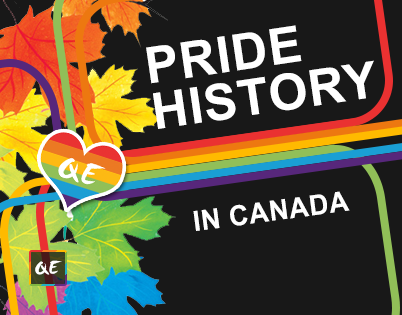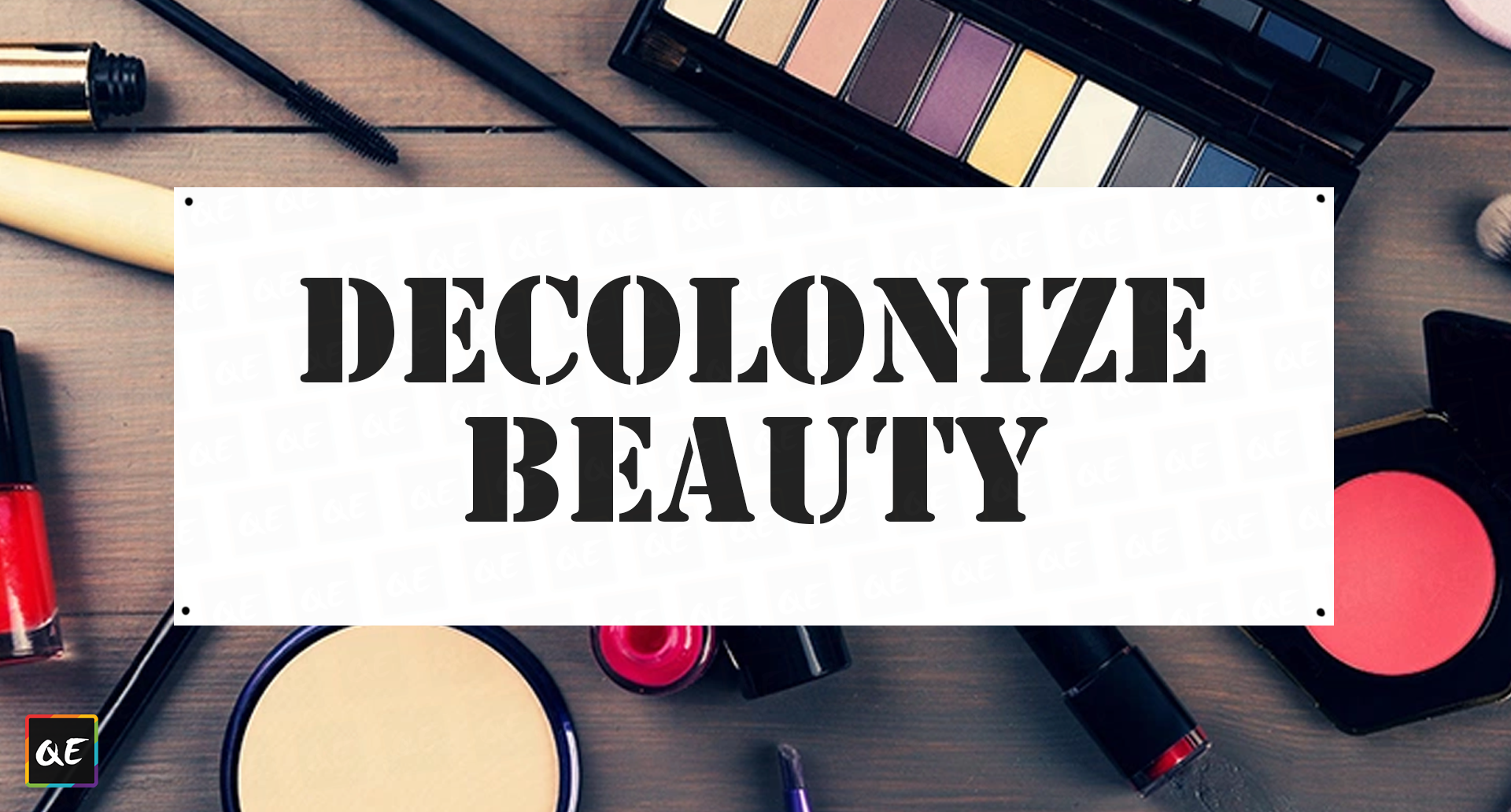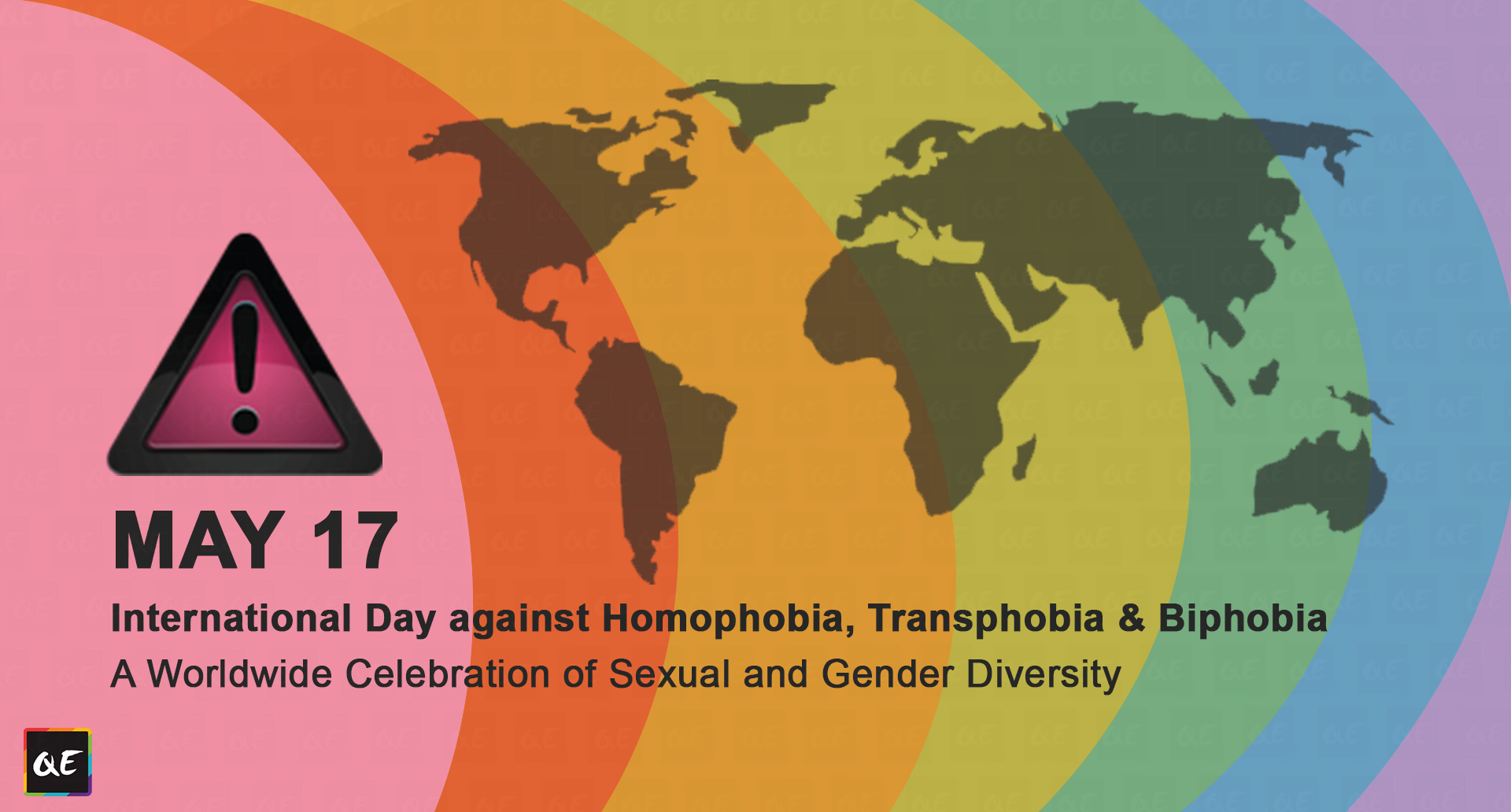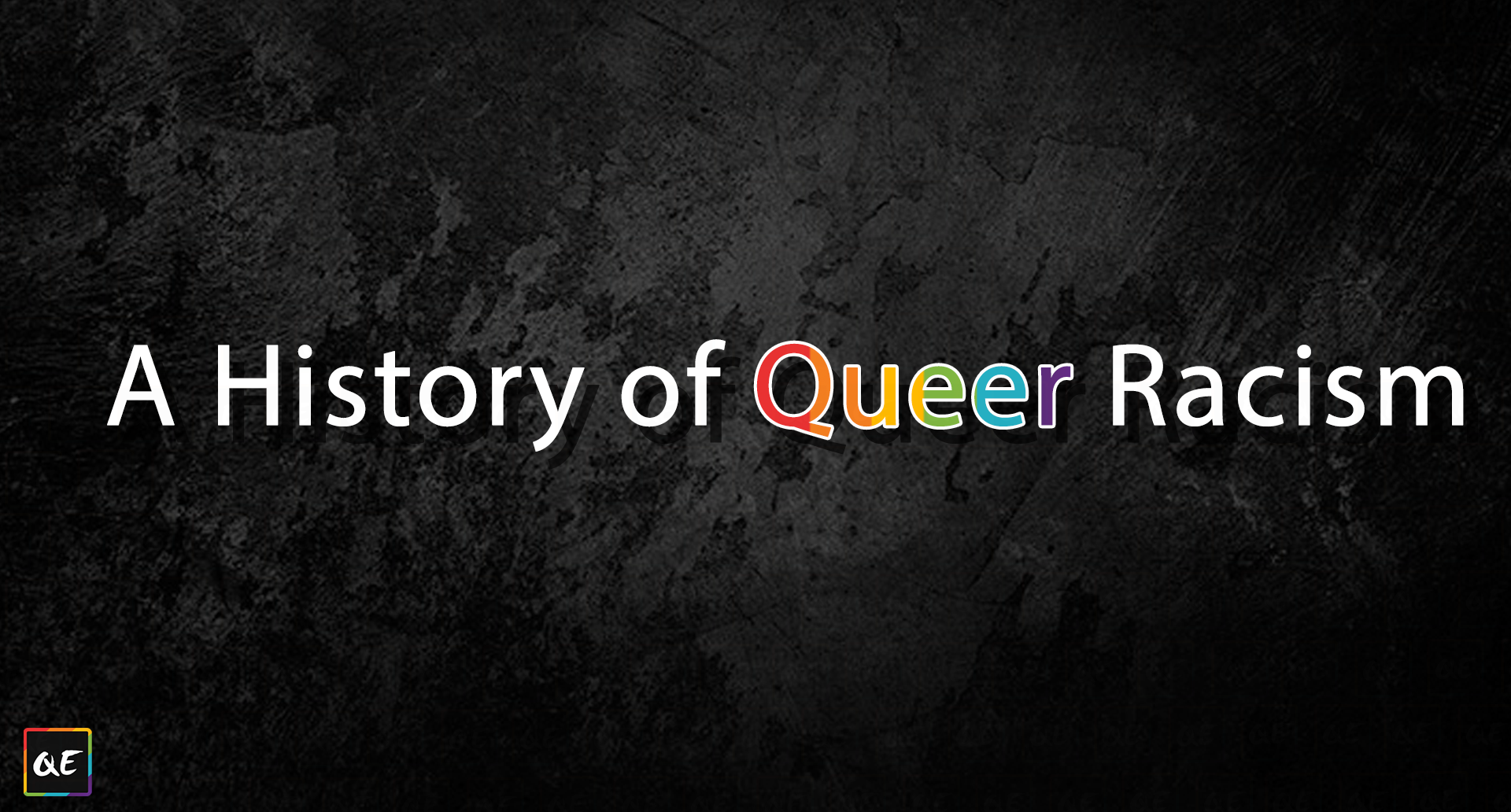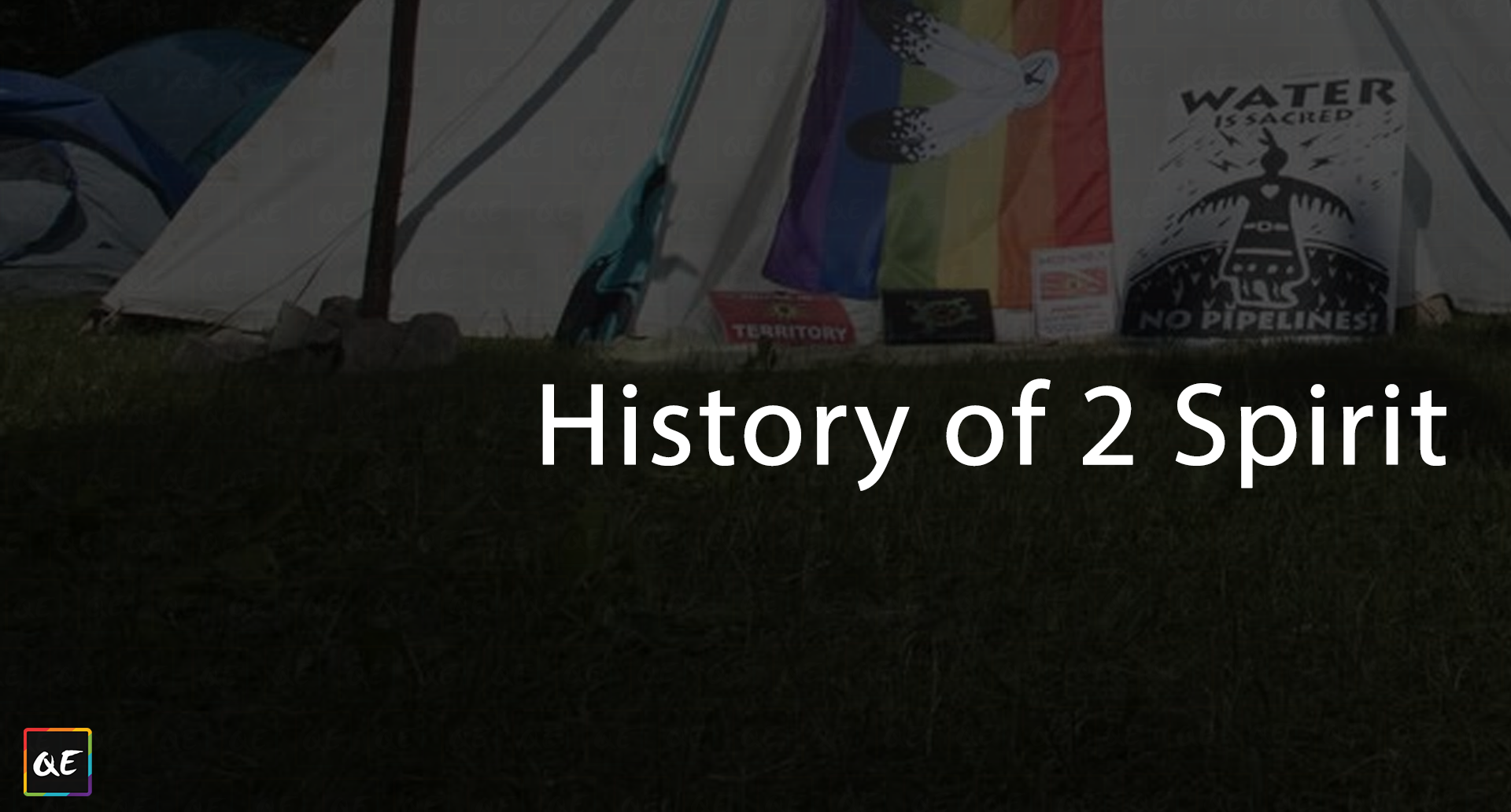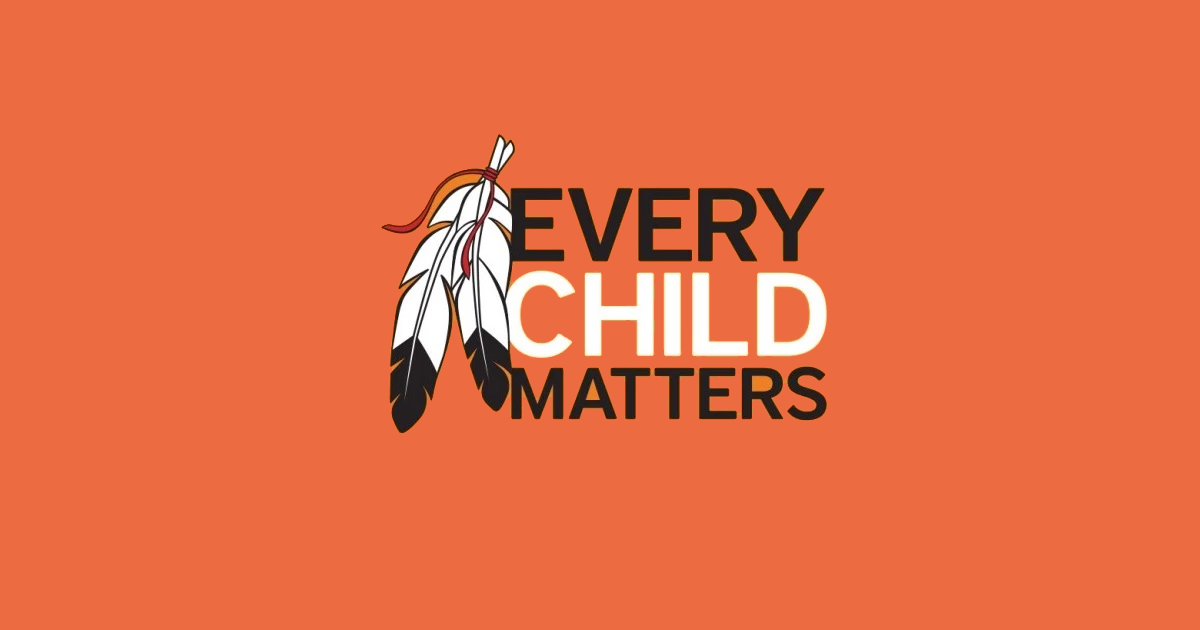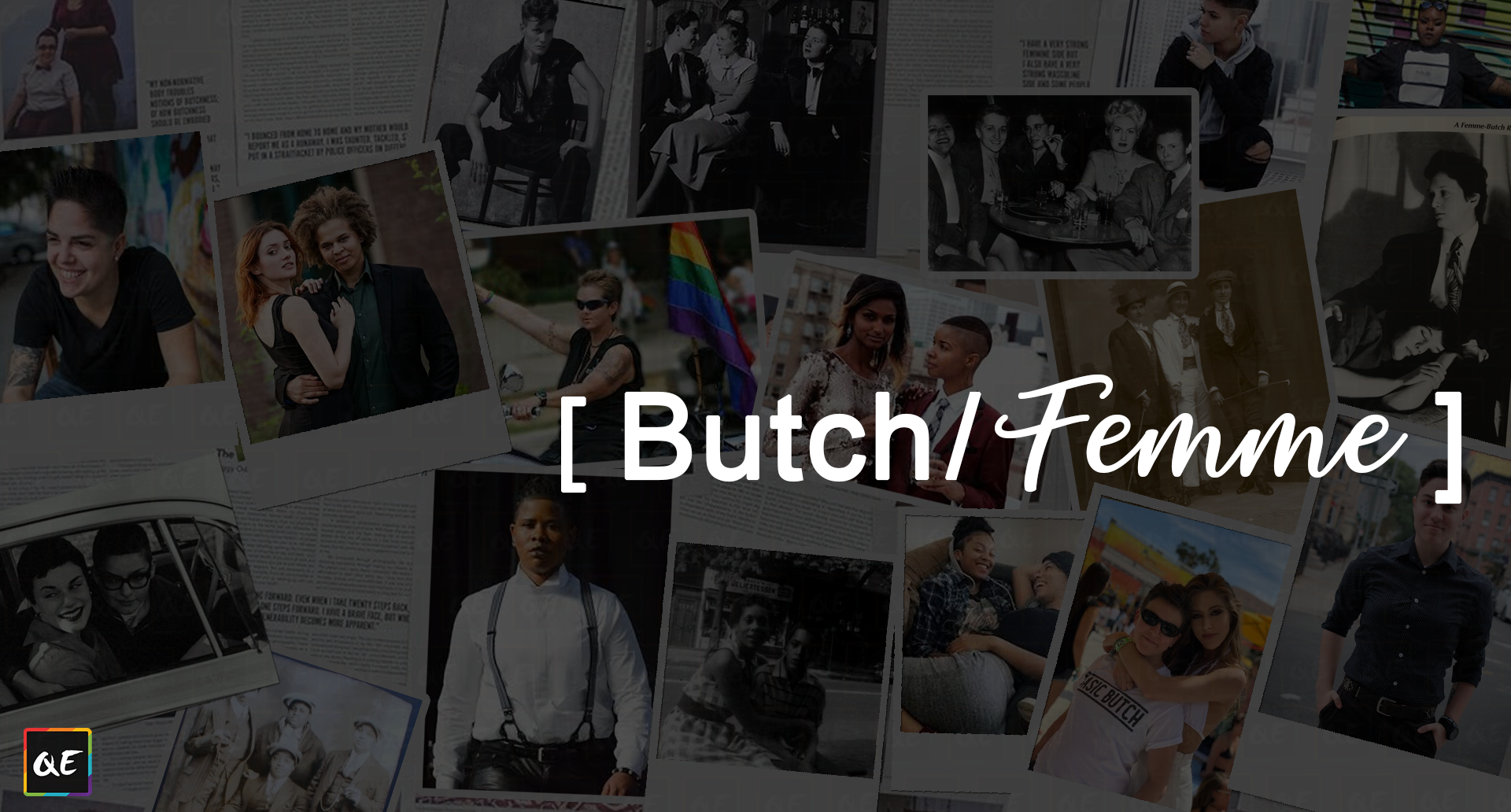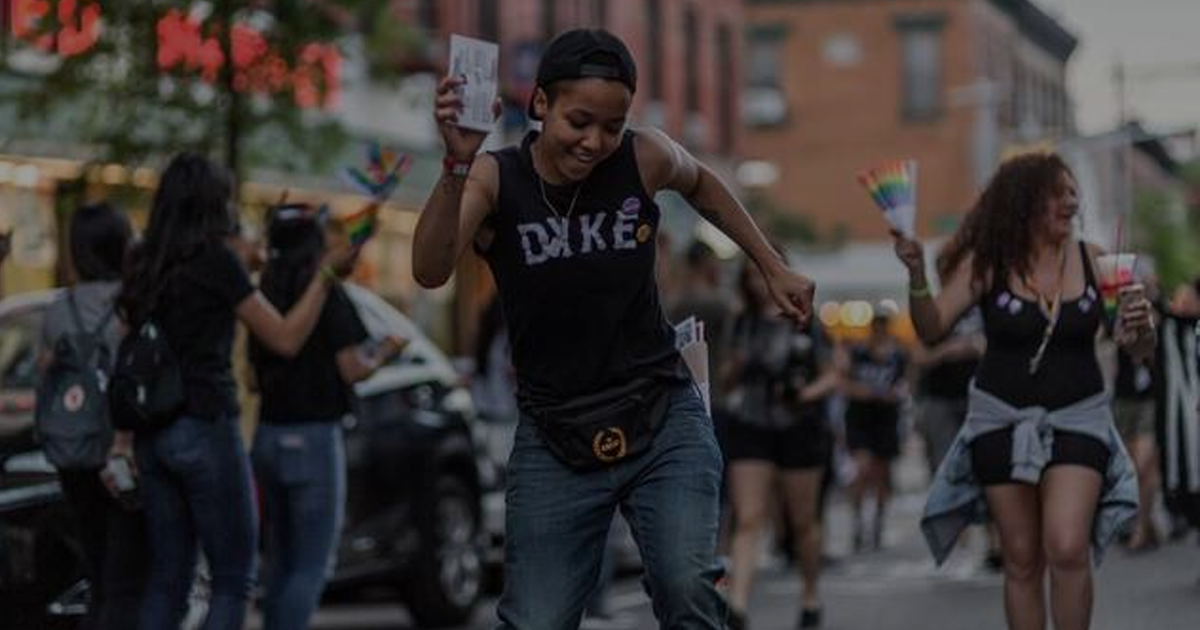
The Tipping Point
Four Key Protests in Canadian LGBT2Q+ History
November 25, 2019In the long history of Canada’s LGBT2Q+ community, there are a few events that stand out as notable moments that sparked a turning point in our history. A tipping point in time in which our community had enough and rose up collectively to create change and demand our rights. These are four key points in our history that led to significant change: the Brunswick Four (1974) case; Operation Soap (1981); the Sex Garage raids (1990) and the Pussy Palace raids (2000)
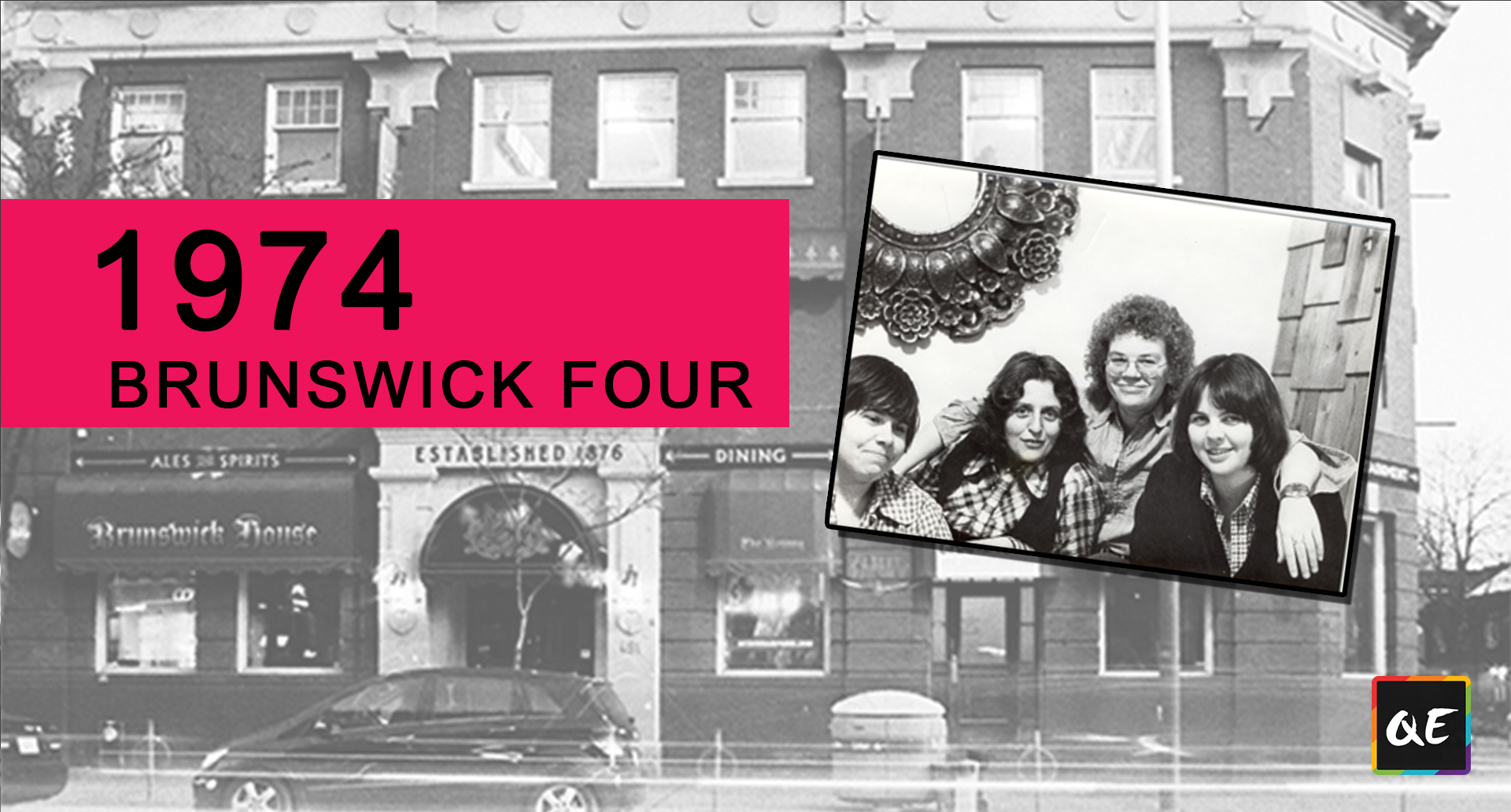
Brunswick Four (1974)
On 5 January 1974, during amateur night at the iconic Brunswick House tavern, Adrienne Potts, Pat Murphy, Sue Wells and Heather (Beyer) Elizabeth were were having a typical night out when an uninvited man approached the women and became aggressive and insulting (including pouring a beer on Pott's head) after having his sexual advances rejected by the women.
Shortly after, the women were forcibly ejected by the bar manager and police officers after heartily singing their own original lyrics, "I Enjoy Being a Dyke," to the tune of the 1950s Broadway ode to femininity "I Enjoy Being a Girl."
I don’t dress up cute and frilly/ and in clothing that I don’t like./ I just go in my jeans and stompers,/ I enjoy being a dyke.
I’ve always been a liberated woman/ I fight for the revolution now./ I snuggle and I cuddle with my sisters,/ and I don’t need a man to show me how./ I’ve always been an uppity woman/ I refuse to run - I stand and strike/ Cuz I’m gay and I’m proud and I’m angry/ and I enjoy being a dyke.
While in police custody, the women were subjected to verbal harassment and denied the right to phone a lawyer. Potts claimed that she was punched and violently thrown to the ground by a police officer. Three of the four had various charges laid against them for disturbing the peace, obstruction of justice and obstructing police. At trial, all of the charges were dropped, with the exception of the 'disturbing the peace' charge against Potts, who was convicted and served three months probation.
“I have heard that I was courageous. In retrospect, and in the present, it has always been an issue of basic survival – physical, emotional and spiritual. Maintaining one’s own integrity and a desire to positively influence the present societal circumstances in which I find myself and others.”
After the trial, Potts, Murphy and Elizabeth charged the arresting officers with assault. The charges were laid by the Crown after the three women produced evidence in the form of doctor's notes and photographs of extensive bruising. Unbeknownst to the women, the police officers had exchanged their hats and the badge numbers that established their identities were confused. At trial, because of this trick, the women couldn't accurately identify the officers. Murphy, Potts and Elizabeth refused to participate in the trial, calling it a scam and miscarriage of justice. When the court clerk ordered everyone to rise for a recess the women refused to rise. The clerk ordered the court to rise a second time. They refused. They were then charged with criminal contempt of court and led to the cells at Old City Hall. Potts and Elizabeth returned to court hours later to apologize but Murphy refused, choosing instead to go to jail for thirty days rather than pay a $25 fine. The officers were acquitted.
The Brunswick House incident and subsequent police actions outraged the lesbian and gay community, which had long suffered harassment by Toronto police. A public meeting was organized at which a legal defense fund was launched to support “the Brunswick Four.”
The Brunswick Four’s resolve to fight back and the community’s condemnation of the charges and police actions were significant events in the history of LGBT2Q+ rights in Canada.. This one of the key events that led to the resolve of the community to resist discrimination and police harassment.
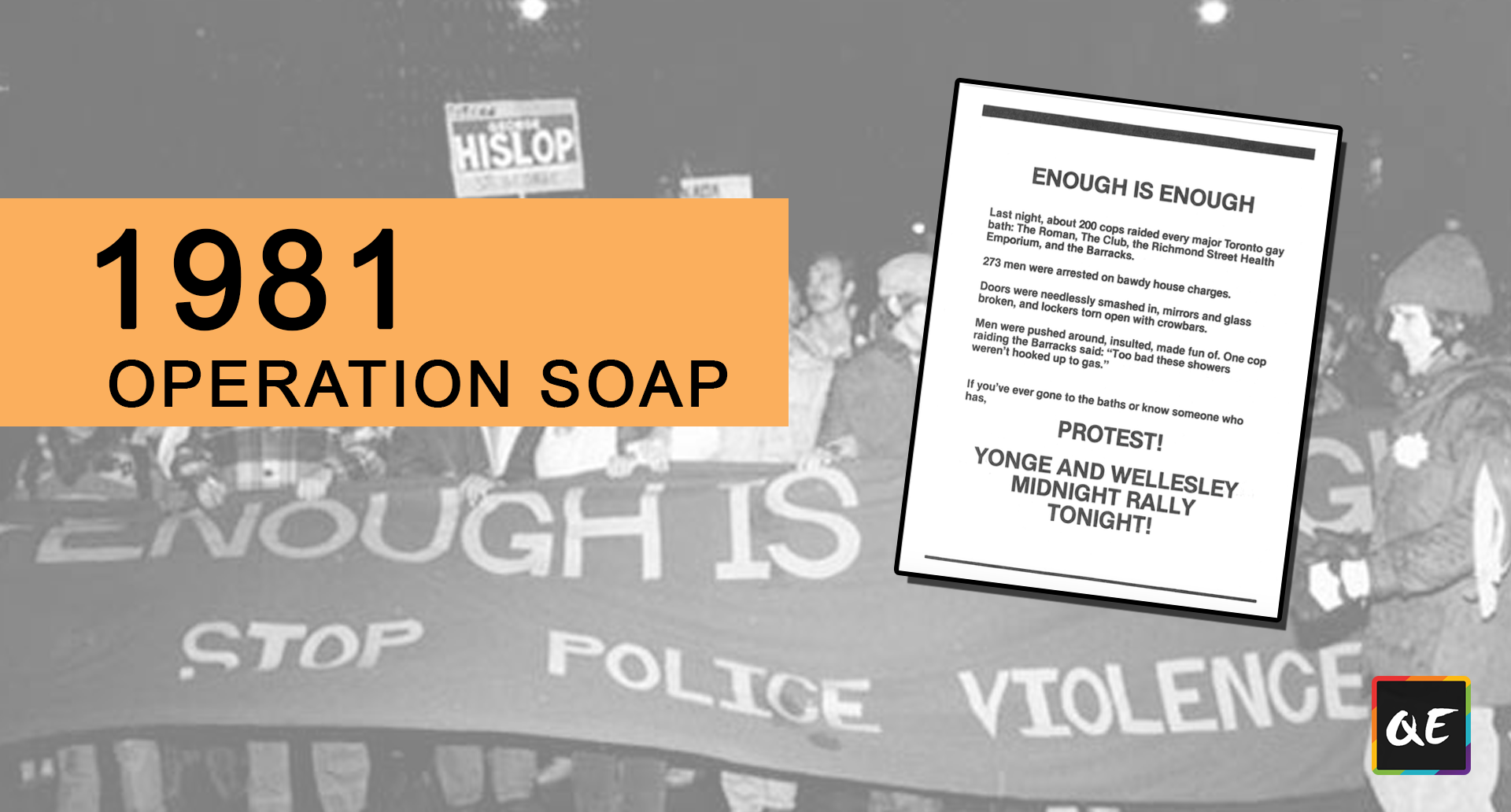
Operation Soap (1981)
Shortly after 11 pm on Thursday, February 5, 1981, hundreds of Toronto Police Service officers led by the service’s Morality Squad raided four gay bathhouses in downtown Toronto under the codename: “Operation Soap.” Three hundred men were arrested, with the mass arrests striking in their sheer number.
Many men detained during the raids reported excessive mistreatment by police, including verbal taunts and physical violence. In most locations, detainees were corralled into larger spaces within the venues—the showers or change rooms—where they were forced to stand naked for hours. At one bathhouse, police propped open the main doors and erected spotlights; men were stripped, marked with the number of the room in which they were found, and forced to submit to rectal searches. In their accounts of the raids, many detainees at The Barracks recalled one specific officer who expressed a desire to violently harm the men in the bathhouse; one man writes, “I remember particularly [the officer’s] use of the word, ‘annihilate’—‘I wish these pipes were hooked up to gas so I could annihilate you all’”.
Less than 24 hours after the raids, the LGBT2Q+ community responded. On February 6, 1981 over 3,000 protestors took to the streets. Following the raids, lesbian activist and influential queer organizer Chris Bearchell recalls a collective shock that resonated through the queer movement and broader “progressive” community following the raids. The shock, she argues, “gave way to fury; women and men in the community went from disbelief to just rage.… Rather than letting that anger weigh us down—debilitate and demobilize us—we were able to channel it into a collective statement”.
Protestors overwhelmed police, forcibly took over space within the city without a permit or set plan and registered their rage. “No more shit!” was the rallying cry screamed as they marched down Yonge Street. The queer community had had enough. The protestors continued moving through the city and set their sights on the provincial legislature, mere blocks away; they nearly broke down the doors to the legislature before police arrived and beat them back.
The riot of February 6, 1981 was a watershed moment in Canadian history and has been referred to as Canada’s stonewall.
Tipping Points: Operation Soap Raids...
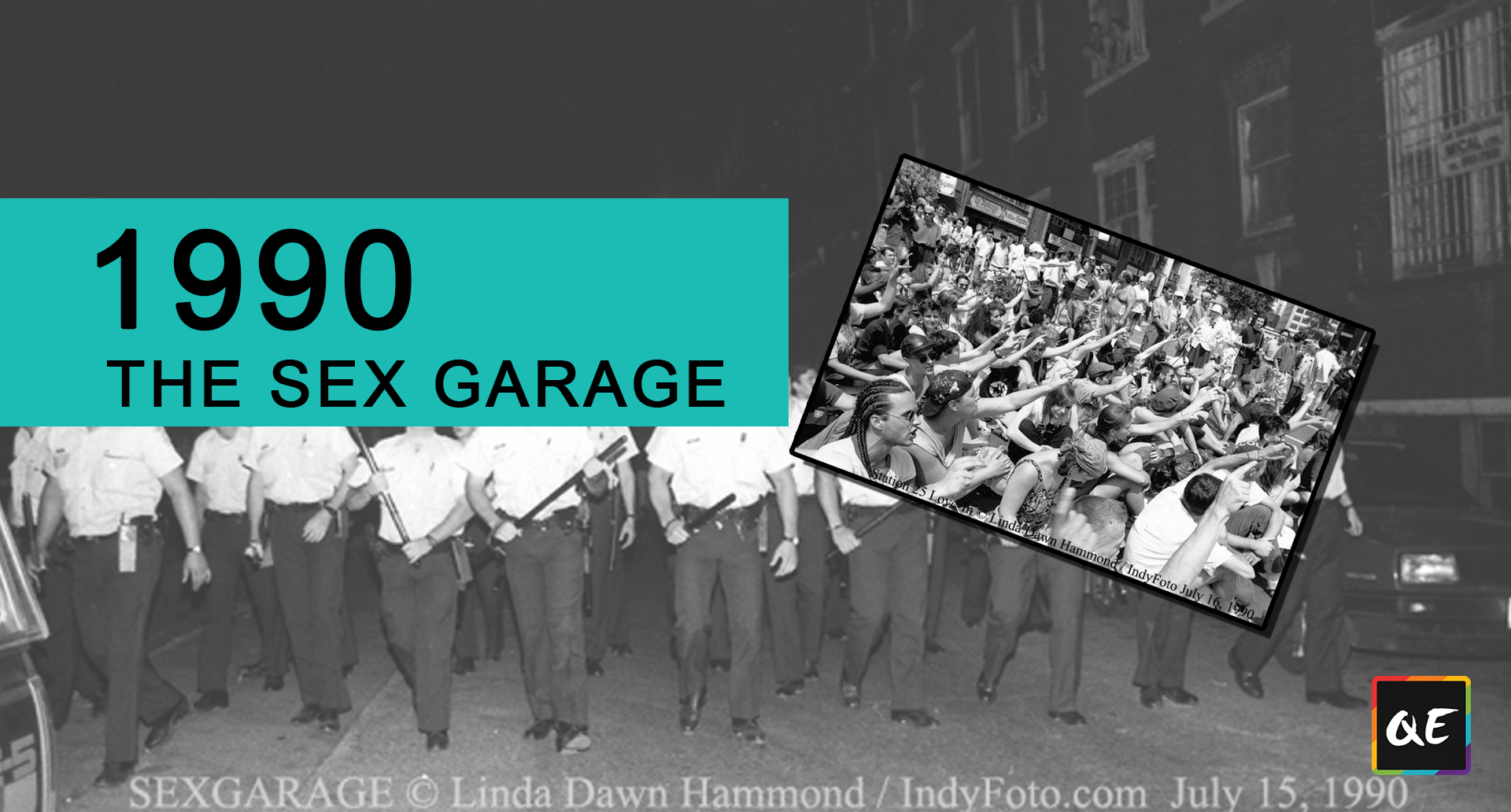
The Sex Garage Raids (1990)
In the early morning of July 16, 1990, Montreal police raided the Sex Garage, an after-hours LGBT club, claiming that the venue was selling alcohol illegally, a tactic that was often used to harass LGBT businesses in Montreal. Unable to find alcohol on the premises, the police retreated, only to return fifteen minutes later, at which point the authorities ordered the four hundred people inside the club to leave immediately, without retrieving their possessions or looking for friends.
Sex Garage's patrons began leaving the venue, only to find a large police presence facing the venue's only exit door. Hammond stated that there were an estimated 32 to 40 officers and 16 police vehicles, some of which were from a police station outside of the area. Some of the patrons fled upon seeing the police while others watched the officers start to regroup into a battalion formation. At some point, many of the police began shouting homophobic slurs; the crowd responded in kind by chanting, for example, “We’re here, we’re queer, we’re proud of it!” The officers began removing or covering their name tags and badge IDs and started trying to steer patrons towards Beaver Hall Hill, where more officers were waiting. One patron, Bruce Buck, became the first victim of physical violence at the hands of the police when he attempted to return to the club to retrieve his jacket; by the end of the raid, at least a dozen people sustained injuries and eight were arrested.
“We were used to being harassed by the police, but the violence at Sex Garage was exceptional. Sex Garage did more for Quebec LGBTQ human rights than any other event before it. It engaged an entire generation of people to be out and, more importantly, to be politically motivated and change culture and change society.”
Hours after the raid victims of the assault, along with other citizens of Montreal, held a sit-in to protest the night's events.The group demanded several things, including a public inquiry and the removal of any charges against the patrons.The protesters disbanded after they were promised that police chief Alain St-Germain would meet them the following day at downtown Station 25. When St-Germain did not appear the following day protesters held a demonstration, only for about 70 police officers to attack the protesters. Forty-eight protesters were arrested and one was hospitalized due to police brutality.
The Sex Garage raid is now widely considered to be Montreal’s Stonewall. The violence ignited 36 hours of clashes between Montreal’s LGBT2Q community and the police force, which was accused at the time of harbouring a culture of homophobia.
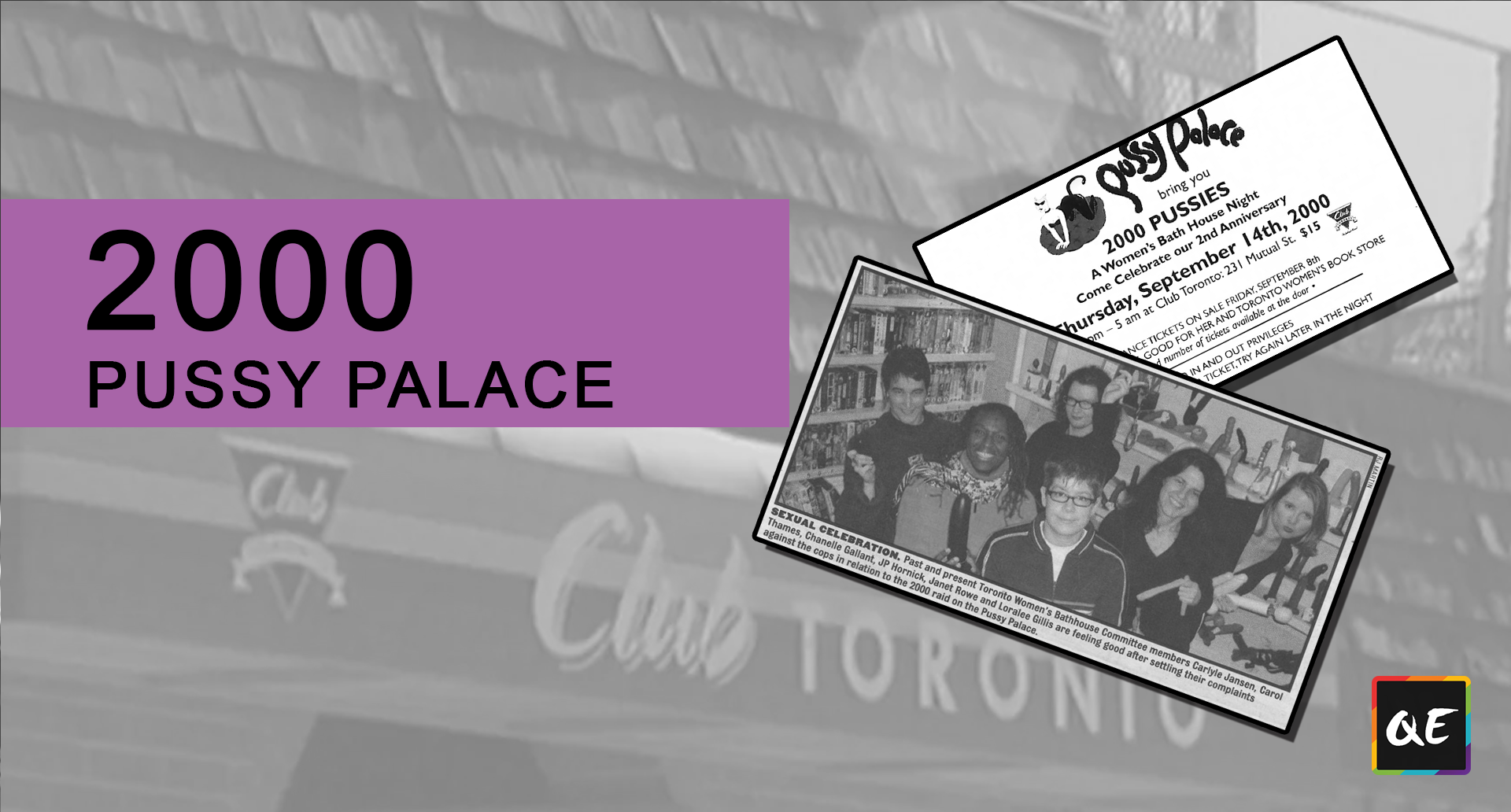
Pussy Palace (2000)
On September 14th, 2000, the Pussy Palace event “2000 Pussies”, a women’s bathhouse event organized by the Toronto Women’s Bathhouse Committee was raided by Toronto police at Club Toronto. It was the second anniversary of the Women’s Bath House event and about 350 women were in attendance that night, many of whom were naked when the male officers entered the building. The male police officers then searched the club, including private rooms, for an hour and a half, ostensibly checking for liquor license violations. They did not give significant warning to the attendees, many of whom were nude or semi-clad, and threatened obstruction charges if women warned others in yet-raided parts of the club.
Protests from the Women’s Bathhouse Committee and the queer community were swift to emerge. The committee held a meeting at the 519 Community Centre, which lead to a march down to police headquarters. Coverage of the Pussy Palace raid linked it back to the 1981 Toronto bathhouse raids on gay male bathhouses, as well as the more recent 1999 police raids on the Bijou and 2000 raids on the Barn, and gay male activists got involved in supporting the protests. The protests included a “panty picket,” where over 100 protesters shook their underwear at the police’s 52 Division offices while chanting “keep your hands off our panties!”
No charges were laid against customers, although police recorded the names of 10 women, and two organizers, Rachael Aitcheson and J.P. Hornick, were charged under the bawdy house law. In 2002, Ontario Court Judge Peter Hryn threw out all the evidence against the two Pussy Palace organizers who were charged with six liquor licence violations stemming from the 2000 raid. The Crown withdrew the charges after Hryn ruled that the raid had violated the Pussy Palace participants’ constitutional rights.
Food for Queers
Stay Safe. Not Hungry
Providing support for 2SLGBTQ+ folks experiencing food insecurities within the city of London

